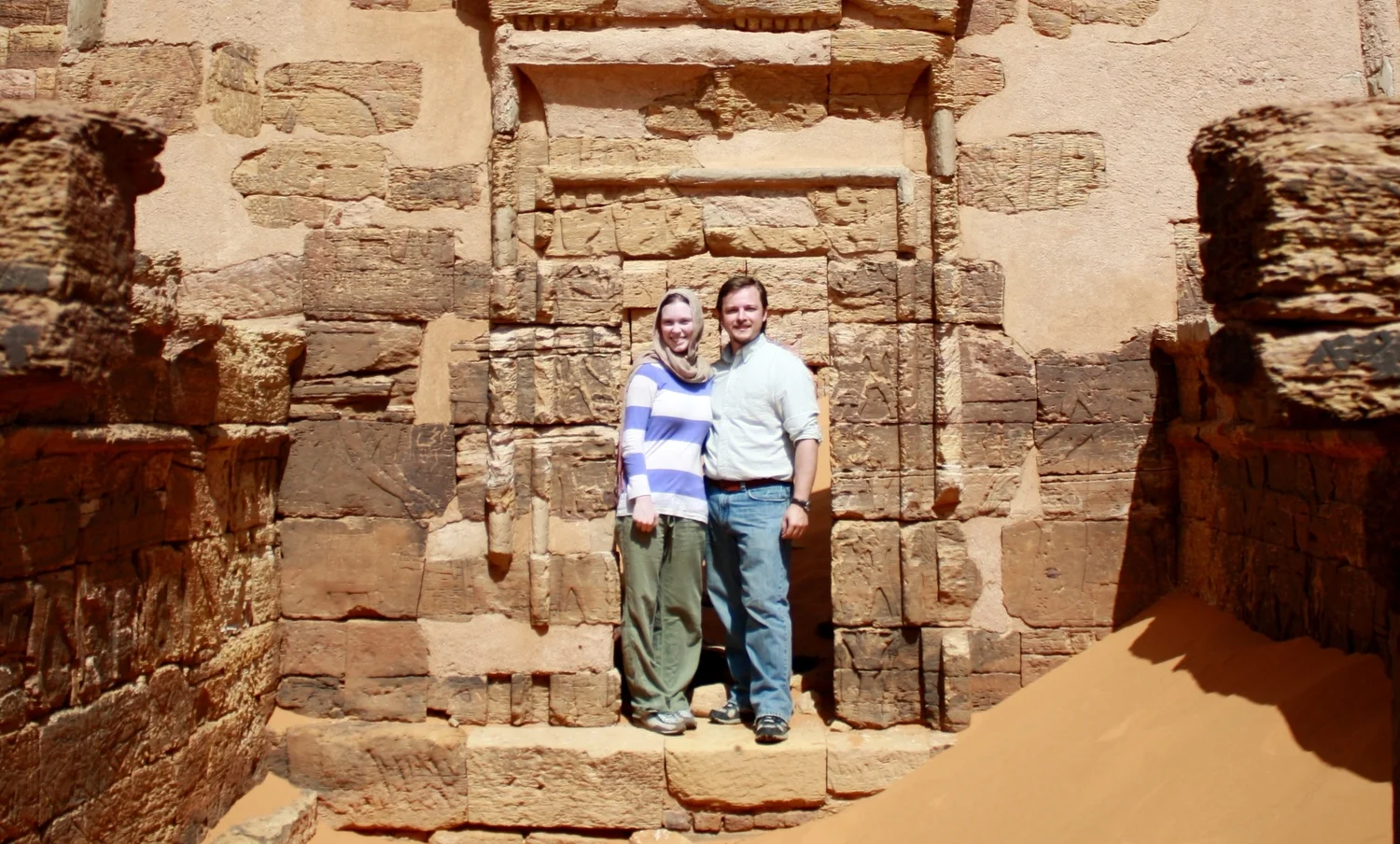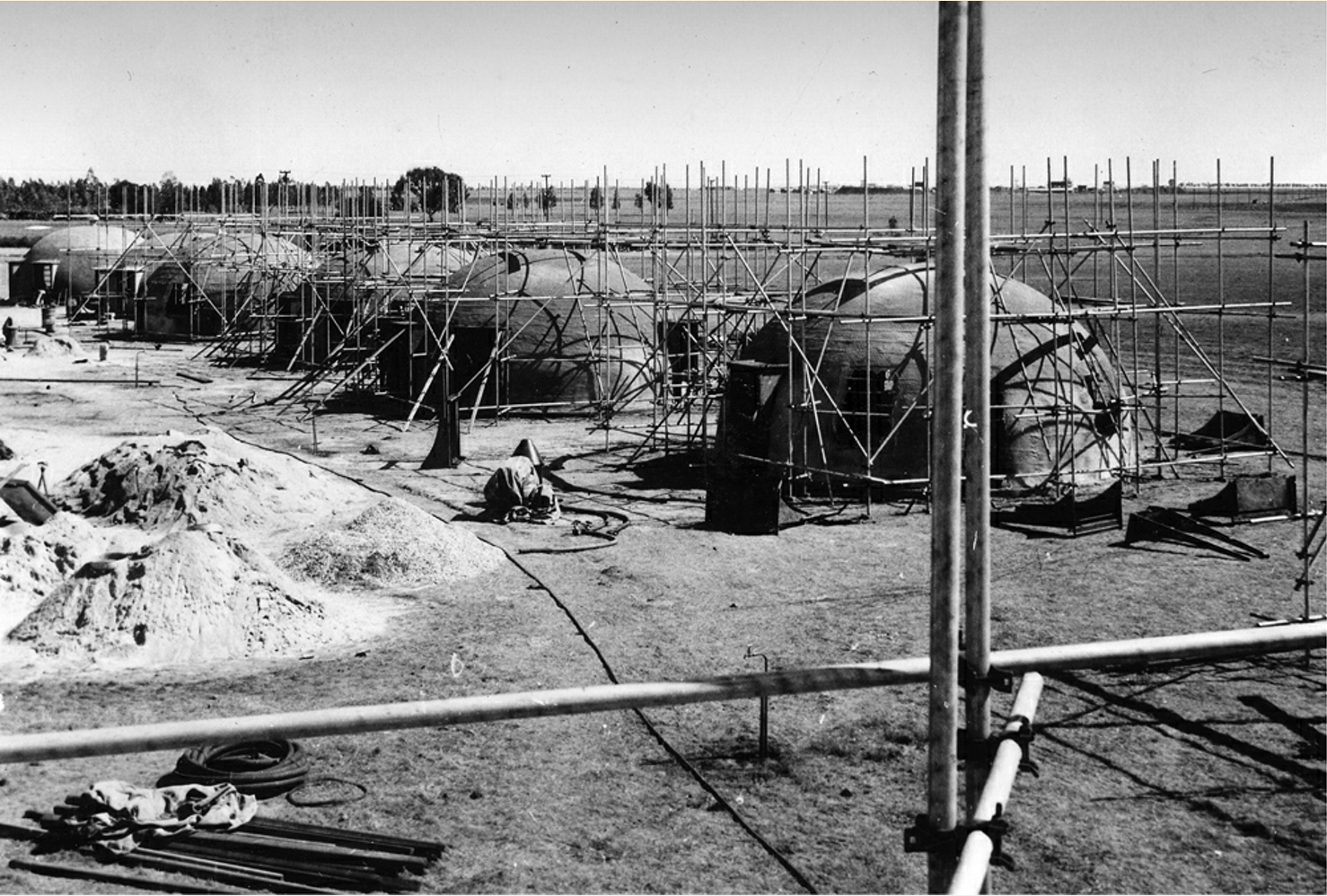Have you ever felt slapped in the face by a building? You were moving along through life at a nice brisk pace and then, wham, a solid construction that stops you in your tracks, like a gateway Arch welcoming you to cross the Mississippi, or the grand statue of Christ the Redeemer embracing Rio de Janeiro?
It’s amazing to think that a single building can define a city, even a nation. The form and design can define a culture. People in the remotest parts of the planet know America by her White House. The world grieved with the French when fire destroyed centuries of history held in the roof of the Notre Dame.
Our buildings become monuments of permanence, solidity; or, as if chisel into stone, a legacy of our history. Perhaps that is why we struggle to tear even the most temporary structures down.
Life in the Bubble
After the global destruction of World War I, a young aspiring architect wanted to make his mark on the world. Wallace Neff wanted to create buildings that radiated innovation and durability. For years he studied shells along the West Coast and marveled at how they endured the relentless pressure and immense forces of nature working against them.
Thanks to the revival of Spanish colonial architecture in Southern California he rose to prominence, becoming the architect for Hollywood stars. That wealth and affluence gave him space to pursue his passion: bubbles. He developed and patented, according to Jeffrey Head, “a new type of construction in which a rubber-coated fabric balloon [was] blown up and then sprayed with concrete or plastic.”
Neff dreamed that his Bubble Houses would take the world by storm. In the early 1940s each bubble only cost $200 and 18 hours to build (still only $2000 today)! He saw those durable pod shells as his life’s legacy. In 1942 the first twelve bubble houses were built in Falls Church, Virginia, and before long Neff and his team were expanding all over America and the world.
So imagine my surprise when I discovered that between 1948 and 1953 there were 1200 bubble houses built on the plateau of Dakar! How was it that I’d lived in Senegal for 6 years and never seen one of Neff’s innovative domed marvels?! Where were these space age defining constructions? Searching old city plans and modern aerial views of the city I finally found what looked like domes. I jumped in the car and drove over to find them. Today only a handful remain, and most of them have been deformed over time with adaptive construction.
The innovations of the past couldn’t stand up to the impact of urban sprawl. Neff’s bubble houses sadly proved inefficient for Dakar’s ever increasing dense population.
Domes of Impact
Looking at these aged innovations, these ineffective concrete dreams, began a new prayer conversation in my heart. Neff wanted to leave a legacy. Who doesn’t? We use terms like ‘impact’ and ‘influence’ to encapsulate our dreams. We want to take an active role in our ministries and how God’s kingdom comes and His will is done. This is well intentioned but should give us pause.
“Evangelical Christians love using the word ‘impact,’ writes Timothy Gombis. “While this is understandable, it is actually a pretty forceful… understanding of ministry. The term impact has to do with forcefully coming into contact with something, which is a pretty violent understanding of how pastors relate to their churches and how churches relate to the world.”
Gombis goes on to explore the missionary ministry of the Apostle Paul who, although we often imagine him as the poster child of activity, instead took a more passive role in deference to what God was doing in the Church. “Paul does not seek to impact his churches, nor even to influence them… In Paul’s view, God is the active agent who builds, grows, and shapes the church. Paul is deferential to God’s intentions and plans so that he sees himself as being at God’s disposal to do with him as God sees fit.”
Forward in a Fog
All of this reminds me how in 2009, as Elise and I were preparing to follow Jesus into the deserts of Northeastern Africa, God led my heart to Exodus 13 and 14. Moses and the people of Israel were on the banks of the Red Sea. They were moving toward God’s vision for their future while their past was dangerously close behind. Over our blessed years in Africa it has often felt that we have been journeying through the desert, blindly trusting the Lord is going before us, like He did at the Red Sea.
Only recently have I begun to see how immense that image really is. The people of God, newly freed from slavery, are following God in fog and fire! Passing through the Red Sea they were surrounded by a fog. Walls of water and a pillar of cloud towered over them while the crashing of Egyptian wheels echoed behind them, pushing them forward.
For forty years the manifest presence of God’s Spirit always went before them, leading them toward the future (Exodus 40.38). How many times did the people tire of the journey, the frustrations of their never-ending pilgrimage? How often were they tempted to breakaway from the pack when the fog began to move?
Surely, they must have thought, “God just made this water sweet. We should stay here!”
“God just provided manna in this valley. Will it be there tomorrow if we move?”
“We finally have water again, bursting forth from this rock. The Lord is at work here. We should stay here.”
Sadly, the people often did resist the movement of the Spirit. They started to set down roots or longed for the rose-colored experiences of the past. They could have chosen to stay at Sinai or be satisfied in Succoth. They could have settled for the innovations of yesterday while God led them again into fog of the unknown that required trust but promised His presence.
If the Spirit moves, should we stay? If the cloud of God’s presence is moving shouldn’t we move with it? Answering these questions may come quickly, but when we become comfortable in our rhythms and content with our patterns, our actions may belie our ready responses. We love that style of worship. We prefer that communication method. (What was wrong with 8-tracks anyway!?) Too often we stay when the Spirit is already on the move.
Bursting the Bubble
There was a time for God’s people to be in Egypt. There was an era for Neff’s bubble houses. There was even a blessed season for them to stay at the foot of Sinai. But the day came when they had to leave Egypt. The day came when Neff’s bubble burst. There even came a day when the Spirit of God left Mount Sinai (Numbers 10.11-12).
We all want legacy and longevity, but what if God is calling us to follow Him into the unknown? Give up trying to define the landscape of your city in your strength. Redefine your life in Christ. Obedience is better than permanence. Follow the Spirit.
We all want to impact the world and influence others, but what if Jesus is calling us to surrender “our” control over “our” ministry, reevaluate yesterday’s innovations and trust in His path and plan. Let the Bubble House burst. Make space for new. Follow the Spirit.
It can be scary to follow the fog of His presence away from Mount Sinai, believing He is doing a new thing (Isaiah 32.19). Follow the Spirit. He made a way through the Red Sea. Now look, He will make a way through the desert. There we will wrestle with your fears in the darkness. We will be like Jacob wrestling with angels and discovering the greater things God has for us down the road, further ahead, beyond our sight (Genesis 32.22-32).
Let us tear down our temporary structures as we fix our eyes on Christ the Redeemer. No architect can rival what He is building, a city radiant with the glory of God (Revelation 21). Jesus has prepared a place for us and His Spirit is leading us there (John 14.3). Follow the Spirit.
Additional B&W Photographs by Steve Roden and Wallace Neff in 1953.




